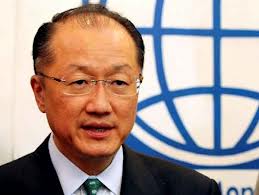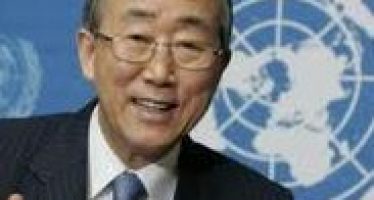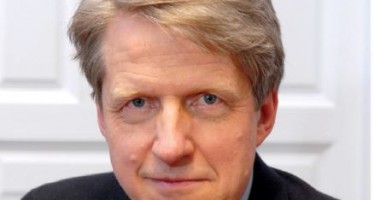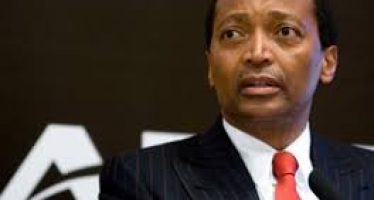The World Bank: Calling for an End to Poverty

Jim Yong Kim
With more than a billion people in the world living on less than $1.25 per day, World Bank Group President Jim Yong Kim today said this week that extreme poverty was “the defining moral issue of our time,” and he described how a new World Bank Group strategy would realign the global institution to help end poverty by 2030 and boost shared prosperity.
Speaking at George Washington University on the eve of the World Bank Group/IMF Annual Meetings, Kim said the Bank must be bold and not be afraid to take “smart risks” to support projects that have the potential to transform a country or a region.
Kim pledged that he would direct more funding to fragile and conflict-affected states. He said it his hope to increase the share of IDA core financing – the Bank’s fund for the poorest – to fragile and conflict-affected states by about 50 percent in the next three years. He also said that the IFC, the Bank’s private sector arm, also would increase funding by 50 percent over three years for low-income and fragile states. The IFC increase could amount to more than an $800 million increase over three years; the IDA amount could not be determined until countries made pledges later in the year.
Kim specifically called on the international community to give greater support to Lebanon, which has allowed more than 760,000 Syrian refugees to settle since fighting broke out in Syria more than two and a half years ago. “We need to do much more or we risk catastrophe in Lebanon,” Kim said.
In his speech, Kim said the new World Bank Group strategy – the first ever to bring together the entire organization, which includes the Bank, IFC, and the Multilateral Investment Guarantee Agency, or MIGA, which provides political risk insurance — would work toward a common purpose.
“For the World Bank Group, our strategy is based on the entire organization working and pulling together,” said Kim. “Our strategy also forces us to be selective – first, choosing our priorities and then, abandoning those activities that are not.”
Kim highlighted three elements of the strategy:
“First, we will partner with the private sector to use their expertise and capital to fight poverty. This is particularly important to create good jobs for the poor.
Second, we will increase our commitment to fragile and conflict-affected states, which will require us to be bolder, take more risks, and commit more resources.
And third, we will be as ambitious as possible on issues that are of global importance, including investing in women and girls and climate change. Our response to climate change, for instance, must be bold enough to match the scope of the problem.”
Kim called for a social movement to end poverty, and he noted that interest in the issue was coalescing around the globe.
“Just six months ago, the board of governors for the World Bank Group laid a foundation for a social movement by endorsing our two goals and declaring that we can end extreme poverty by 2030. Now we are seeing interest from all corners. Political leaders, including President Obama and UK Prime Minister David Cameron, are calling for an end to poverty. Faith-based leaders are calling for an end to poverty. The One campaign, Oxfam, Save the Children, and RESULTS and many other civil society groups are calling for an end to poverty. And young people – people like yourselves here at George Washington University — are calling for an end to poverty,” said Kim.
Kim described his attendance at the Global Poverty Project’s Global Citizens Festival in New York’s Central Park on September 28, and he encouraged listeners to his speech to log on to the Global Poverty Project website — www.zeropoverty2030.org — and sign a petition to end poverty in a generation.
“This is the defining moral issue of our time. Our goals are clear. End extreme poverty by 2030. Share prosperity with the bottom 40 percent, and share it with future generations. We have an opportunity to bend the arc of history and commit ourselves to do something that other generations have only dreamed of,” Kim said.
You may have an interest in also reading…
THE UN and Water Management
The United Nations has launched the International Year of Water Cooperation, which seeks to provide a platform for countries to
Robert J Shiller: Mastering Data
One of the elite Sterling professors at Yale University, he predicted both the dot-com bubble and the collapse of the
Motsepe: First African to sign the Giving pledge
Patrice Motsepe, aged 51, is a South African mining magnate born in Soweto who is now reputed to be the

















































































